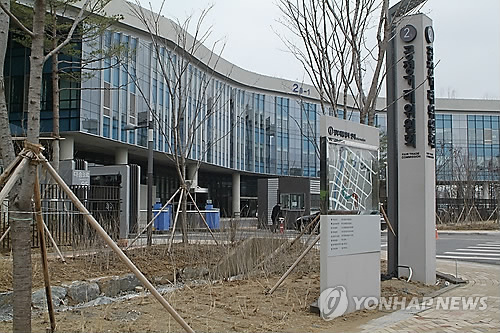Korea’s antitrust agency said Wednesday it has found no evidence of collusion among banks in setting three-month certificate of deposit rates, used as a benchmark for a large portion of consumer bank loans.
“The investigation is closed due to lack of evidence,” said Kim Seok-ho, a standing commissioner of the Fair Trade Commission. “It is not that the banks are cleared of allegations. Should evidence surface in the future, the probe may reopen.”

The FTC began looking into CD rate-fixing allegations in July 2012, when the global banking community was rattled by a spate of market-rigging scandals, including one concerning the international benchmark rate Libor.
The agency had sought to determine whether six banks colluded to manipulate CD rates between 2011 and 2012, while the rates failed to track falling market rates.
Between November 2011 and July 2012, the average bank deposit rate fell about 0.3 percentage point, but the CD rate dropped only 0.01 percentage point.
Commercial banks issue CDs to secure funds for lending and use the CD rates as a benchmark for setting their lending rates. Therefore, they could benefit when rates are quoted at unusually high levels.
The six banks investigated were KB Kookmin, Shinhan, Woori, Hana, Nonghyup and Standard Chartered.
The lenders welcomed the decision, while civic groups cried foul.
The Financial Consumer Agency vowed to take the case to court, claiming that the alleged rate-rigging incurred combined damages of 4.1 trillion ($3.5 billion) won on nearly 5 million consumers.
By Lee Sun-young (
milaya@heraldcorp.com)





![[Herald Interview] 'Trump will use tariffs as first line of defense for American manufacturing'](http://res.heraldm.com/phpwas/restmb_idxmake.php?idx=644&simg=/content/image/2024/11/26/20241126050017_0.jpg)

![[Herald Review] 'Gangnam B-Side' combines social realism with masterful suspense, performance](http://res.heraldm.com/phpwas/restmb_idxmake.php?idx=644&simg=/content/image/2024/11/25/20241125050072_0.jpg)
![[Health and care] Getting cancer young: Why cancer isn’t just an older person’s battle](http://res.heraldm.com/phpwas/restmb_idxmake.php?idx=644&simg=/content/image/2024/11/26/20241126050043_0.jpg)